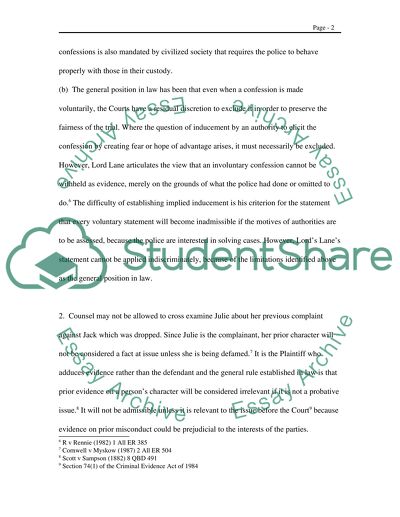Cite this document
(Justice Criminal Evidence Assignment Example | Topics and Well Written Essays - 1250 words - 4, n.d.)
Justice Criminal Evidence Assignment Example | Topics and Well Written Essays - 1250 words - 4. https://studentshare.org/law/1541746-law-of-evidence
Justice Criminal Evidence Assignment Example | Topics and Well Written Essays - 1250 words - 4. https://studentshare.org/law/1541746-law-of-evidence
(Justice Criminal Evidence Assignment Example | Topics and Well Written Essays - 1250 Words - 4)
Justice Criminal Evidence Assignment Example | Topics and Well Written Essays - 1250 Words - 4. https://studentshare.org/law/1541746-law-of-evidence.
Justice Criminal Evidence Assignment Example | Topics and Well Written Essays - 1250 Words - 4. https://studentshare.org/law/1541746-law-of-evidence.
“Justice Criminal Evidence Assignment Example | Topics and Well Written Essays - 1250 Words - 4”. https://studentshare.org/law/1541746-law-of-evidence.


